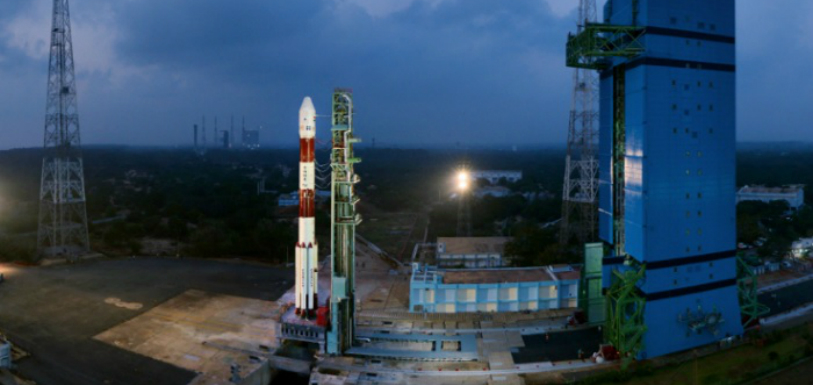Today, the Indian Space Research Organisation (ISRO) will launch its 100th satellite at 9:29 A.M., from Sriharikota in Andhra Pradesh. The 28 hour countdown for the Polar Satellite Launch Vehicle (PSLV) carrying 30 other satellites began yesterday at 5:29 A.M. The launch time is postponed by a minute from 9:28 to 9:29 A.M., fearing the collision due to the space debris. The surveillance satellite from the Cartosat 2 series will watch over India’s hostile neighbors.
The 30 satellites to be launched today include two from India and 28 from other Countries. Canada, Finland, France, South Korea, the United Kingdom and the U.S. Scientists stated this mission will be unique as the satellites will be launched into two different orbits. Thirty satellites will be launched in an orbit 550 Km and one satellite 359 Km above the Earth’s surface.
The launch will be done using multiple burn technology. In this process, the rocket’s engine will be switched off and then switched on to control the rocket’s height. The whole process starting from the lift off is said to take a total of 2 hours and 21 minutes. This is said to be the longest process so far.
The 710 Kg Earth Observation Satellite is said to be the third in the Cartosat 2 series. The previous satellite of this series was launched successfully in June 2016. The Indian Regional Navigation Satellite System (IRNSS 1H,) India’s first privately built satellite failed last year in August. The heat shield did not separate as expected leading to a loss of Rs. 250 crores and a failed mission.
The Director of the Indian Space Research Organisations’ (ISRO) Satellite Centre, M. Annadurai said, “The PSLV had a very successful run up to its 39th mission (PSLV-C39,) which was a setback as the heat shield failed to separate.” He further added the ISRO held tests to ensure the issue does not occur again. Annadurai said, “We have studied in detail as to what could have gone wrong and are making sure it does not repeat. With PSLV-C40, we are back in the game.”
The IRNSS 1H was supposed to replace one of the seven orbiting satellites of Navigation with Indian Constellation (NAViC.) The IRNSS launch became necessary after three atomic clocks of one of the satellites started malfunctioning. Atomic clocks provide navigational data and they are crucial for a Global positioning system.
ISRO’s PSLV rocket weights nearly 320 tonnes and stands up to 44.4 meters tall i.e., equivalent to a 15 storey building.

































